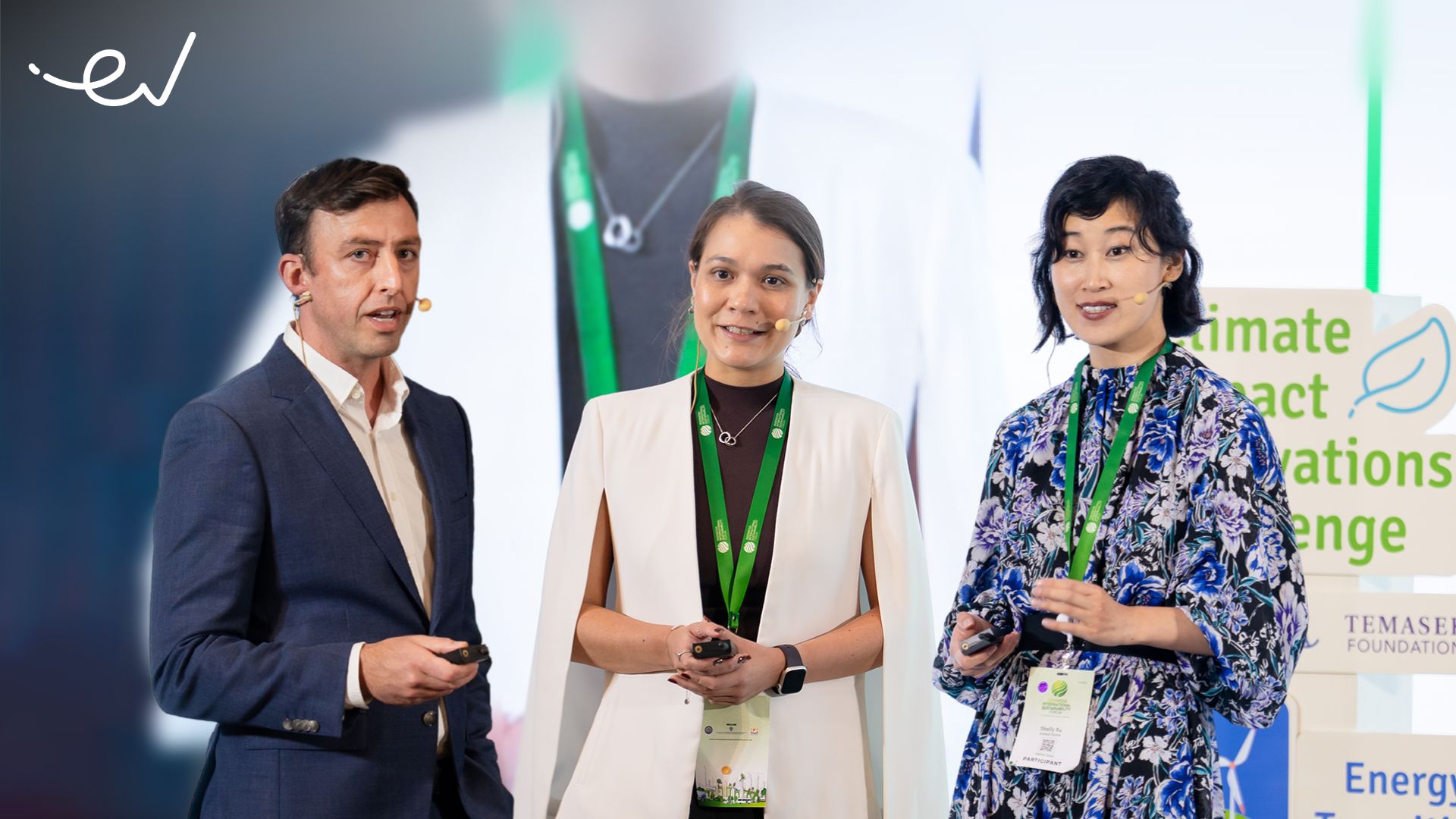Walk through Jakarta, Bangkok, or Ho Chi Minh City, and you will somehow experience a “deja vu”: padel courts are fully booked, boutique pilates studios have waiting lists, and new healthy food brands are rapidly expanding.
Many have labeled this phenomenon the “wellness economy,” which gained popularity as the world recovered from the COVID-19 pandemic in 2020.
At East Ventures, we see this as evidence of something much more profound. Not just a fleeting trend, this phenomenon marks a significant shift in the priorities and values of Southeast Asia consumers.
Not a new category, these consumers are adopting a new way of thinking. The demand for more wellness-centric services and products acts as a clear signal of a fundamental change in the region’s consumer landscape and broader consumer industry.
Understanding this new consumer—what motivates them and how they make decisions—is key to understanding the landscape today.
The main drivers of this consumer shift
We are observing a shift in consumer dynamics driven by three powerful forces:
1. Distinct values
The new center of gravity is the younger consumer—Gen Z, who have fundamentally different values from those of previous generations, and lifestyle-conscious Millennials. They are:
- Values-driven: They prioritize sustainability, authenticity, and long-term impact. Deep research towards a brand is needed as they prioritize those who put consumers first.
- Socially-influenced: Strong branding and active social media presence are crucial in influencing these new consumers, as their purchasing decisions are often shaped by social influence, peer validation, and immediacy. They also desire to stay relevant and connected.
2. A proactive angle on health
The shift from reactive “sickness care” to proactive “wellbeing investment” is here to stay.
This change is not arbitrary; it is driven by rising health literacy and the stark reality that chronic conditions are appearing earlier in younger patients. With the world more connected, these cases are more visible, raising awareness across demographics.
Instead of waiting for illness to strike, these young consumers are actively investing in prevention through fitness, nutrition, and holistic self-care, which is driving the growth of the wellness economy.
3. Looking for a meaningful experience
This new consumer also buys differently as the journey is now evolving into a hybrid, multi-touch experience. They expect seamless omnichannel interactions.
- “Phygital” wins: Digital platforms are crucial for discovery, education, and habit tracking, but offline venues build trust, community, and the tangible experiences consumers crave.
- Experience economy: For a new generation of consumers, spending money is less about owning things and more about feeling happy and creating shareable moments.
There’s a growing interest in wellness, spanning food, lifestyle, and overall health, driven by increased health awareness, social media influence, peer validation, and the desire to follow trends.
How the ecosystem is seizing consumer shifts
In a crowded market, simply having a “wellness” product is not enough. To truly succeed and seize the wellness economy in Southeast Asia, breakout potential comes from founder agility, brand authenticity, and a deep understanding of the new consumer.
We see our portfolio companies winning not by chasing a trend, but by expertly executing on strategies that meet these new consumer demands.
1. Mastering the “phygital” experience
Consumers want a seamless blend of online and offline channels. The most compelling models? Online-to-Offline (O2O).
Portfolio in action: Sociolla, FIT HUB, & AMODA
Sociolla, one of the pioneers in the Indonesian beauty market, does this by blending its powerful e-commerce platform with experiential physical stores for beauty discovery.
Not only that, but understanding the nuances of different countries—and even different cities within a single country—is crucial. This is why, with over 100 Sociolla outlets across Indonesia and Vietnam, the company continues to focus on its strong community presence that global competitors cannot easily replicate.
Today’s consumers have also begun to shift towards more niche, sometimes indie, brands in comparison to bigger, mainstream beauty products that are primarily sold in drugstores. This marks the rising popularity of local brands that offer affordable yet high-quality products.
FIT HUB leverages technology to make its physical, tech-enabled gyms more affordable and accessible, capturing the demand for both digital convenience and physical community.
To date, there are over 120 FIT HUB gym outlets across 30 cities in Indonesia, offering various mind-body fitness classes, including Pilates, yoga, Bachata, and more.
On the other hand, prop-tech firm AMODA provides “modular” building solutions for businesses, from SMEs to large enterprises, looking to create an offline experience of their own.
Most recently, the firm is helping brands tap into the wellness trend by offering facilities for padel court construction across the Jakarta area.
2. Building authentic, values-driven brands
Today’s consumers are values-driven and demand authenticity. What founders can do about this is to create a strong brand and a clear narrative that truly differentiates them from the competitive pool. A deep understanding of their consumer base is key to delivering a consistent, resonant story.
Portfolio in action: ESQA & Compawnion
When ESQA launched, it did not just sell cosmetics. It entered the market as Indonesia’s first vegan and cruelty-free cosmetics brand. This “values-first” approach directly met the new consumer’s demands and built an authentic community from day one.
Compawnion, founded by “pet parents” who want to give the best nutrition for their furry companions, is built on transparency and quality. It upholds a “non-negotiable” list of ingredients in its products, prioritizing the pets’ needs and health while still marketing them at an affordable price.
While several competitors may be “resellers” of Chinese or Thai products under their own brands, Compawnion wants to stay true to its commitment, offering high-quality products with an honest nutrition label.
3. Championing hyper-localization and community
Consumers are influenced by peer validation and drawn to the local culture and modern revivals of traditional practices, such as jamu in Indonesia and holistic Thai self-care rituals reimagined.
Founders must recognize that the wellness industry is not “one-size-fits-all.” They must build brands that are culturally resonant and community-centric.
Portfolio in action: Greenly, SaladStop!, & ISMAYA Group
Greenly and SaladStop! are winning by making healthy, convenient food accessible to urban consumers in local areas.
With a mission to bring a healthy diet to all levels of society—not just for a niche market—Greenly, which began its green story in Surabaya, is now available in more than seven cities in Indonesia, including Semarang, Bali, and Sidoarjo.
SaladStop!, specifically, is also leveraging artificial intelligence (AI) to automate personalization in response to queries from health-conscious consumers who want to know the nutritional profile of various ingredients, potential allergens, and the allowable level of personalization, among other details. This AI chatbot is called “Lulu.”
Lulu can also track the availability of ingredients, the location of the nearest stores, turnaround time, and more. To date, the AI chatbot is targeting a Singapore release in November 2025, with plans to expand globally thereafter.
The use of AI allows SaladStop! to boost its customer engagement and loyalty, which aligns with East Ventures’ latest white paper, “AI-first: Decoding Southeast Asia’s trends.”
Meanwhile, Indonesia’s leading lifestyle and hospitality group ISMAYA is also responding to the consumer shift. The company did not just recently install a padel court (Social Padel House); it created an active social wellness hub, tapping directly into the consumer desire for community-based activity and catering to their demand for a healthier lifestyle.
The full spectrum of consumer-led wellness
This consumer shift is not creating a single new industry. Instead, “wellness economy” has become a lens that reveals opportunities across all consumer-facing sectors.
At East Ventures, we back founders who are authentically building for the betterment of people’s lives. Our portfolio reflects the full spectrum of this consumer-led integration:
The opportunity in the Southeast Asian consumer market is immense, and it is still in its early stages.
The next wave of category-defining companies will be built by agile founders who leverage technology to create authentic, culturally resonant, and community-first brands.
Looking ahead, we also see AI as the great catalyst. The real strength of AI lies in its endless possibilities; when applied with precision, AI serves as a catalyst for businesses to scale and become more productive.
AI plays a crucial role in enabling brands to stay relevant in this fast-paced, dynamic environment by delivering a more customized and engaging experience for consumers.
If you are one of those founders, we are eager to hear from you. Send us your pitch.







